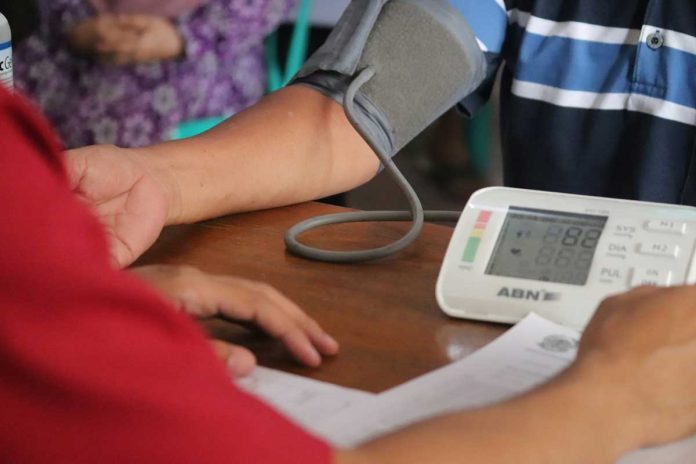
ILOILO City – Among young adults in the Philippines, high blood pressure is fast becoming a silent epidemic, prompting cardiologists to sound the alarm over what was once considered a disease of aging.
According to Dr. Karen Marie Cunada of the Philippine Heart Association – Philippine College of Cardiology (PHA-PCC), hypertension is now increasingly prevalent among those aged 20 to 40 years old — many of whom are unaware they are already at risk of heart disease, stroke, and organ damage.
“Hypertension in young adults is often undiagnosed because it has no obvious symptoms, but the long-term consequences are serious,” said Cunada.
Citing global data, Cunada said 12.7% of men and 7.4% of women aged 20 to 29 already have high blood pressure (defined as above 140/90 mmHg or requiring medication).
The numbers jump further among those in their 30s — 18.4% of men and 12.6% of women.
Cunada pointed to the CARDIA Longitudinal Study, which tracked cardiovascular risks over decades. It found that elevated blood pressure in one’s 20s strongly predicted the buildup of coronary artery calcium by the 40s — an early sign of heart disease.
“Once you develop hypertension, it’s a lifelong condition. If left unmanaged, it can lead to organ damage, particularly in the heart, brain, and kidneys,” she said.
Lifestyle factors — including poor diet, physical inactivity, smoking, and excessive alcohol use — are primary culprits.
Cunada also stressed that psychological stressors such as depression, hostility, and socioeconomic hardship contribute to the problem.
“Young-onset hypertension is a growing public health concern. We need to raise awareness and make early detection more accessible to prevent long-term complications,” she said.
She recommended that individuals, especially those with family history or other risk factors, begin regular BP monitoring as early as their 20s — ideally twice daily, in the morning and before bed.
“Prevention is key. Lifestyle modifications such as a balanced diet, reduced sodium intake, regular exercise, and stress management can help control BP levels,” she added.
For those already diagnosed, Cunada urged strict adherence to medications and treatment plans tailored to individual conditions.
Iloilo City hosted a convention of the Philippine Heart Association – Philippine College of Cardiology early this year (January 31 to February 1) at the Iloilo Convention Center. It gathered top cardiologists nationwide to address trends and strategies in managing cardiovascular diseases, with a special emphasis on early prevention and community-level interventions.
Cunada urged policymakers and the health sector to expand public education and ensure widespread access to blood pressure screenings, especially in underserved communities./PN





